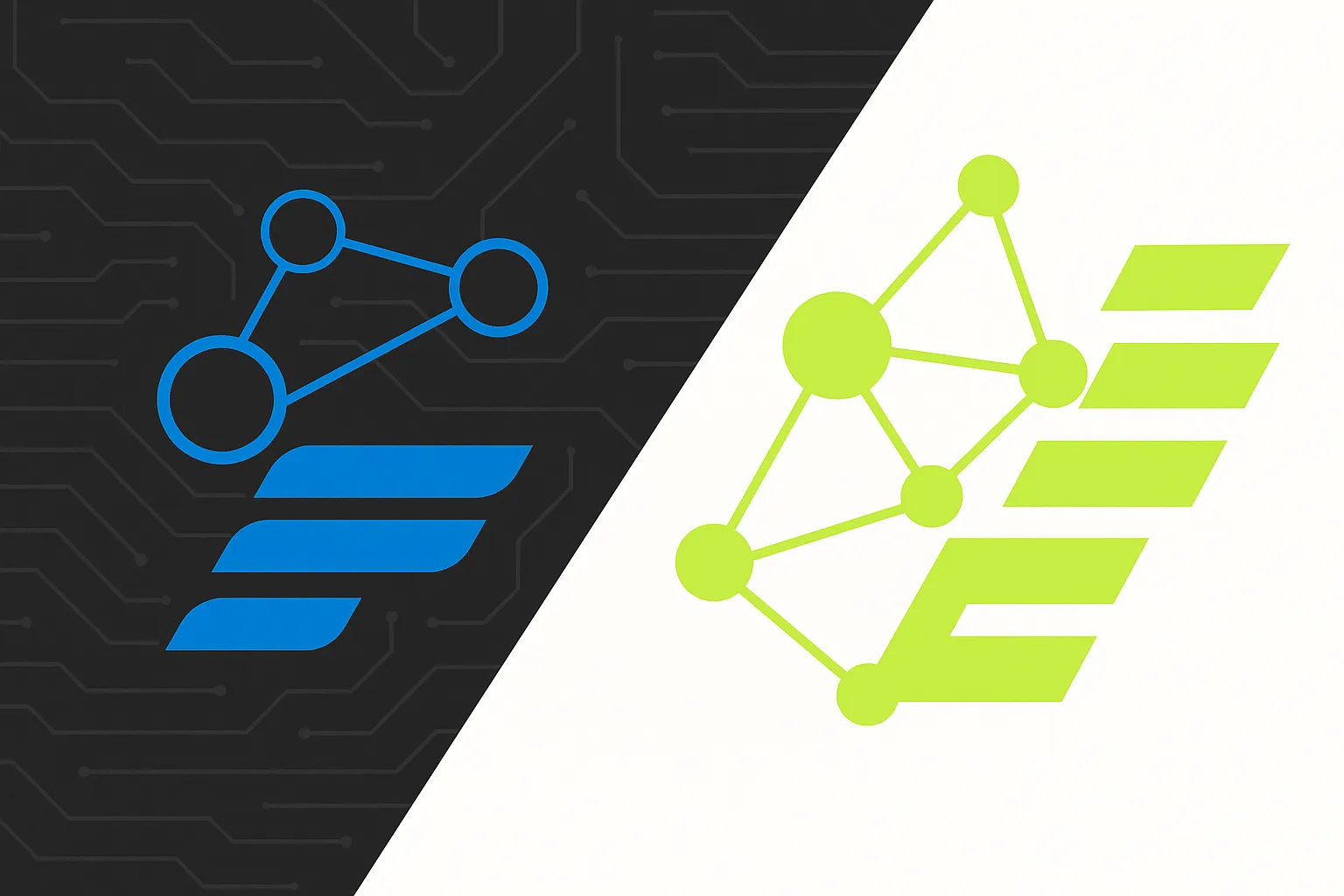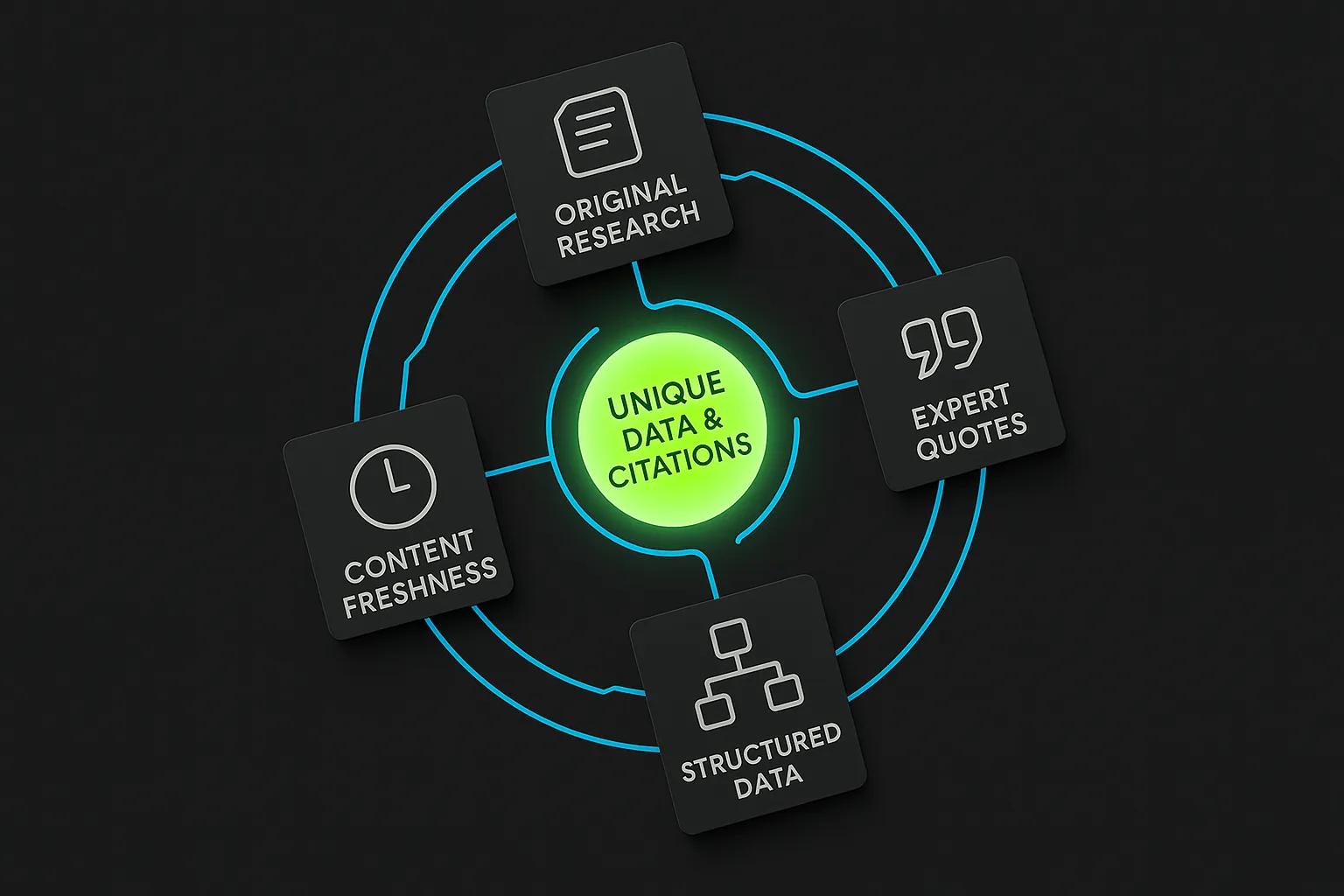Mastering Google's AI Overviews & LLMs: How Strategic AI SEO Adapts to New SERPs
AI Summary
Mastering Google's AI Overviews & LLMs involves adapting your SEO strategy to thrive in evolving search engine results pages (SERPs) by focusing on authority, entities, and machine readability. This article explains the shift from traditional keyword SEO to entity-based, AI-centric optimization with a structured framework called GEO.
- Who: SEO professionals, digital marketers, business owners evaluating SEO strategies.
- What: Strategic AI SEO adaptation to Google's AI Overviews and Large Language Models.
- When: Immediately, as AI-driven search results impact rankings now and ongoing.
- Where: Digital marketing and search engine optimization industries with focus on Google SERPs.
- Why: To future-proof SEO, become the cited authority, attract high-quality traffic, and outperform competitors in AI-powered search environments.
You have seen it. A detailed, conversational answer suddenly appears at the top of Google, pushing the familiar blue links further down the page. This is Google's AI Overview, and it is fundamentally changing the rules of search. If you are currently evaluating your SEO strategy, you might be wondering if your current approach will become obsolete. You may even fear a significant drop in traffic.
This fear is valid, but it is also based on an outdated view of SEO. The "No-Visit Scenario," where users get answers without clicking, is not a threat. It is a filter. It separates businesses chasing empty clicks from those who are ready to attract highly qualified, decisive customers. The game is no longer about getting the most clicks. It is about becoming the most trusted source of information, the one Google's AI cites directly.
This guide moves beyond basic explanations. It provides a strategic framework to help you assess your current efforts and understand how to win in this new era of search.
The New Ranking Factor: From Clicks to Citations
For years, the goal of SEO was simple: rank number one and win the click. That model is breaking down. With AI Overviews now appearing in over 35% of U.S. desktop searches, a new reality has emerged. Research suggests approximately 60% of searches may end without a single click when an AI Overview is present.
This is not a cause for panic. It is a call for precision.
The clicks that remain are from users with higher intent. They have received a summary from the AI and are now ready to engage with the definitive source. The new primary goal of SEO is to become that citable source. You are no longer just optimizing for a human scanner. You are optimizing your content to be so clear, authoritative, and well-structured that a machine intelligence selects it as the foundation for its answer.
Winning in this environment means shifting your focus from traffic volume to traffic quality, from ranking for a keyword to becoming the recognized authority on a topic.
How Google's AI Actually Thinks: From Keywords to Entities
To adapt your strategy, you first need to understand how these systems work. Google's AI Overviews are powered by Large Language Models (LLMs) using a process called Retrieval-Augmented Generation, or RAG. In simple terms, the AI does not just "know" things. It actively queries the live web index to find the most reliable information to construct its answer.
This is where the old SEO playbook fails.
Traditional SEO is keyword-centric. It focuses on repeating specific phrases to match a user's query. This approach is one-dimensional and easy for competitors to replicate.
Strategic AI SEO is entity-centric. An entity is not just a word. It is a concept, a person, a place, or an idea with defined relationships to other concepts. For example, instead of just targeting the keyword "small business financing," an entity-based approach connects the core concept to related entities like "SBA loans," "venture capital," "business credit scores," and "cash flow management."
This creates a rich, interconnected web of knowledge that an LLM can easily understand and trust. It sees that you do not just mention keywords. You comprehensively cover a topic and its relationships, signaling true expertise. This is precisely what pageBody's AI SEO Strategist is designed to build: a deep, interconnected content architecture that establishes your business as the definitive entity on your core topics.
The GEO Framework: A Strategic Blueprint for AI-First SEO
While competitors offer checklists of reactive tips, a durable strategy requires a proactive system. We call this Generative Engine Optimization (GEO), a framework for structuring your content not just for human readers, but for the generative AI that now acts as the gatekeeper to search traffic.
Step 1: Foundational Authority (E-E-A-T)
First, you must have the fundamentals in place. Google's standards for Experience, Expertise, Authoritativeness, and Trustworthiness (E-E-A-T) are the absolute baseline. Your content must be accurate, written by credible authors, and demonstrate real-world experience. This is non-negotiable and the price of entry for any serious SEO effort.
Step 2: Building Your Knowledge Graph (Entity Mapping)
This is where you move beyond the basics. Instead of a simple content calendar, you need to build your own internal knowledge graph. This means strategically mapping out the core entities in your industry and creating content that explicitly connects them. You are building a web of information on your own site that mirrors how an AI understands the world. Each piece of content reinforces the others, creating a powerful network of topical authority.

Step 3: Machine-Readable Content (Advanced Schema & Structuring)
Your expertise must be legible to machines. This goes beyond standard blog post formatting. Using advanced structured data, like Schema.org markup for FAQs, articles, and products, gives AI a clear, organized summary of your content. You are essentially providing a "cheat sheet" that helps the LLM quickly verify your information and prioritize it. Clear headings, concise paragraphs, and logical information flow are also critical for machine readability.
Step 4: Proving Authority (Citations & Unique Data)
To become the source, you must provide something no one else can. This is where your unique business data, proprietary research, and expert insights become your most valuable SEO assets. Publishing original statistics, case studies, or trend analyses makes your content highly citable. When other authoritative sites link to your data, and when Google's AI itself references your findings, you create a defensible moat around your expertise.

The Strategic Advantage: A System Beats a Checklist
Adopting an entity-based GEO strategy is not just about tweaking a few pages. It represents a fundamental shift in how you approach content and SEO. While others are reactively updating old blog posts, this framework allows you to proactively build a content ecosystem that is inherently resilient to algorithm changes.
You stop chasing keywords and start owning topics. You stop building disconnected pages and start weaving a web of authority. This approach transforms your website from a simple collection of articles into a structured database of expertise that AI is built to reward. The result is not just survival. It is dominance in the new landscape of search, leading to more qualified traffic and measurable business growth.

Frequently Asked Questions about AI-Driven SEO
Will traditional SEO factors like backlinks and page speed still matter?
Absolutely. Technical excellence, a good user experience, and high-quality backlinks remain crucial signals of trust and authority. They are part of the E-E-A-T foundation. However, they are no longer enough on their own. The GEO framework builds upon these traditional factors, adding the layers of entity-centric strategy and machine readability required for AI Overviews.
How long does it take to see results from an entity-based SEO strategy?
Unlike simple keyword tactics that can yield temporary gains, building true topical authority is a strategic commitment. Initial results can often be seen within 3 to 6 months as Google begins to recognize the interconnectedness of your content. The most significant, lasting benefits emerge over time as your knowledge graph deepens and establishes your site as the go-to resource in your field.
Is this approach only for large companies with big content budgets?
Not at all. This approach is actually a significant advantage for small, focused businesses. A large corporation may have a broad but shallow content footprint. A smaller business can choose a specific niche and build deep, interconnected authority that is impossible to replicate. It is about the quality and structure of your knowledge, not the sheer volume of content.
Your Next Move in the New Era of Search
The introduction of AI Overviews is the most significant change to search in a decade. Businesses that cling to outdated, keyword-focused tactics will see their traffic erode. Those who adapt and embrace a strategy built on authority, entities, and machine readability will capture the most valuable customers.
You are at a critical decision point. Evaluating your current SEO strategy against this new reality is the first step. The next is to partner with a team that understands how to build a future-proof system for growth.
If you are ready to move from chasing clicks to becoming the cited authority in your industry, schedule a discovery call with pageBody. We will help you identify how an AI-driven SEO strategy can transform your business.


